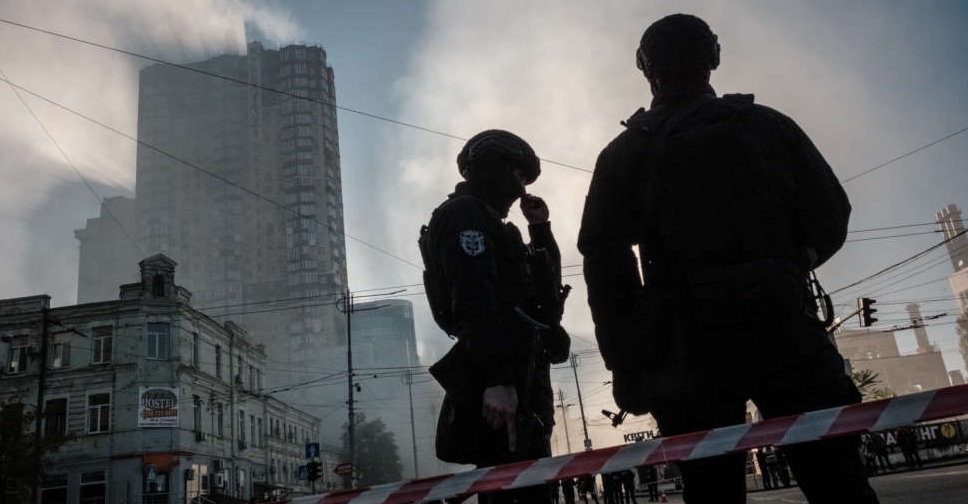
More than a dozen Russian missiles pounded critical infrastructure across Ukraine on Saturday, the Ukrainian air force said, with several regions reporting strikes on energy facilities and power outages.
Ukraine's air force command reported that 33 missiles had been fired at Ukraine on Saturday morning and that 18 of those had been shot down.
Since October 10, Russia has launched a series of devastating salvos at Ukraine's power infrastructure, which have hit at least half of its thermal power generation and up to 40 per cent of the entire system.
Shortly after daybreak on Saturday, local officials in regions across Ukraine began reporting strikes on energy facilities and power outages as engineers scrambled to restore the ruined network. Governors advised residents to stock up on water in case of cut-offs.
Presidential advisor Kyrylo Tymoshenko said that as of Saturday afternoon, more than a million people across Ukraine were without power, with 672,000 of those in the western region of Khmelnytskyi alone.
After the first wave of missiles hit early in the morning, air raid sirens rang out again nationwide at 11:15 a.m. local time (12:15 p.m. UAE time).
Ukrainian presidential aide Mykhailo Podolyak said Moscow wanted to create a new wave of refugees into Europe with the strikes, while foreign minister Dmytro Kuleba said they constituted genocide.
"Deliberate strikes on Ukraine’s critical civilian infrastructure are part of Russia’s genocide of Ukrainians," Kuleba wrote on Twitter.
Moscow has acknowledged targeting energy infrastructure but denies targeting civilians.
State grid operator Ukrenergo said the attacks targeted transmission infrastructure in western Ukraine but that power supply restrictions were being put in place in ten regions across the entire country, including in the capital, Kyiv.
"The scale of damage is comparable or may exceed the consequences of the attacks (between) October 10-12," Ukrenergo wrote on the Telegram app, referring to the first wave of strikes on Ukraine's power system last week.
Meanwhile, the deputy head of Kyiv's city administration, Petro Panteleev, warned that Russian strikes could leave Ukraine's capital without power and heat for "several days or weeks".
"This possibility exists...we have to understand and remember this," he told the Ukrainian outlet Ekonomichna Pravda.

 UK inquiry finds 'chilling' cover-up of infected blood scandal
UK inquiry finds 'chilling' cover-up of infected blood scandal
 Iranian President Raisi killed in helicopter accident, state media says
Iranian President Raisi killed in helicopter accident, state media says
 ICC prosecutor seeks arrest warrants for Israeli, Hamas leaders
ICC prosecutor seeks arrest warrants for Israeli, Hamas leaders
 Assange given permission to appeal against US extradition
Assange given permission to appeal against US extradition
 Israel intends to broaden Rafah sweep, Defence Minister tells US
Israel intends to broaden Rafah sweep, Defence Minister tells US




